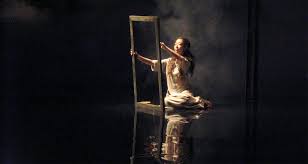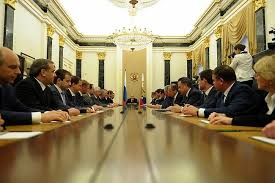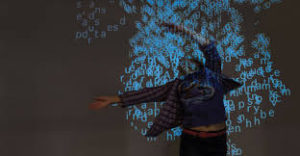In our terms, whether a minute or 10 minutes, or an hour or two hours were involved, we react ahead of time to a headline that have not as yet physically encountered. We react creatively, using the precognitive story as a basis for a fictional endeavor. We turn it into art’s purposes.
The idea, then, of the my blogs came from past and future events, though I were to catch up with those future events very quickly. My mind intuitively organized all of that material, and put it together in a completely new fashion. Sometimes when such events occur, the precognitive trigger is not recognized when it is encountered physically, because it happens too far ahead of time. We organize mental and physical events in a creative manner. In this case my blogs were involved because the concept, while strongly involving images, carries a time span that would make narrative necessary.
I used the magical approach. I caught myself in the act of acting naturally, of demonstrating abilities that our society to a large degree does not admit. That same kind of lighting-swift organization goes on within the body itself constantly, as it deals with probable scenarios to which we may or may not end up reacting to.
The events themselves discussed in any newspaper article point up the same kind of magical affiliations. We live personally in a world of lush creative ideas. Our intellect is aware of that. It is used to working creatively. The focused intellect can indeed activate the intuitive abilities — and the healing abilities. We get what we concentrate upon.
The intellect is a vital organizer even if it is not aware of the magical levels of activity from which often it’s best ideas emerge.
When we look at world events, however, the present world situation for example ( wars in the Middle East), try to enlarge the scope of our intellectual reach, so that we consider world events as living multidimensional “blogs” being formed in the present in response to both future and past triggers. The impact of the future on the past, in our terms — or rather, the implications of the future on the present — are highly important, and such precognitive reactions are as vital, numerous, and real as we ordinarily think that the reactions to past events are.
This puts present world events in an entirely different perspective. Men and women act, then, in relationship to events happening, say, in the future, in certain terms cast their shadows back into the present, or illuminate the past according to the events’ characteristics. There is always more going on than ordinary sense data show.
In our comparatively simple experience, we can see, however, the implications of such activities. Men and women react to future events by unconsciously translating them into art, or motion pictures. They may react by unconsciously taking certain steps of a political nature that seem at the time either unreasonable, or even incomprehensible — steps whose logic appears only in hindsight.
The same occurs, of course, in all areas of human behavior, as well as in the behavior of animals and even of plants. This future shadowing the presents, or future illuminating the present, represents a vital elements in the formation of events as they are perceived in time. In a fashion triplets are reacting in their past to a future event that now can catch up with them, so that each of their actions in any moment of that past happened as a result of a tension — a creative tension — between the event of their original separation and the event of their future reunion.
I do not mean that the reunion is inevitable or predestined, but the vigor of that probabilities, we might say, magnified the original tension. I want to apply all of this to my own situation, both in terms of creative endeavors and my physical situation, so that I begin to understand that I can start to react in the present to a future change.
I can see how important periods of letting go are. My experience happens where I am nearly asleep, but merely relaxed, not worrying, with my intellect in a kind of free flow. I am not hampering it. It is momentarily free of limiting beliefs, and it naturally used — and chose to use — the magical approach to answer what is very simple, now-forgotten intellectual question: What might be in today’s news?
The usual answer, or the usual method of obtaining an answer, is at times inconvenient: I was not about to get up , go to the TV or computer and get the news, so on it’s own the intellect pressed the magical-approach button, I might say, getting the information the quickest and easiest way possible.
It did not give me the bare headline, however — even though that and the blog story were perceived far too quickly for me to follow. What I was aware of was my own creative reveries in response to that information.
Now left alone, the intellect will often solve problems in just such a fashion, when it is allowed to, when we forget what is supposed to be possible and what is not, when we forget that our mind is supposed to be pedestrian and parochial.








































































































































